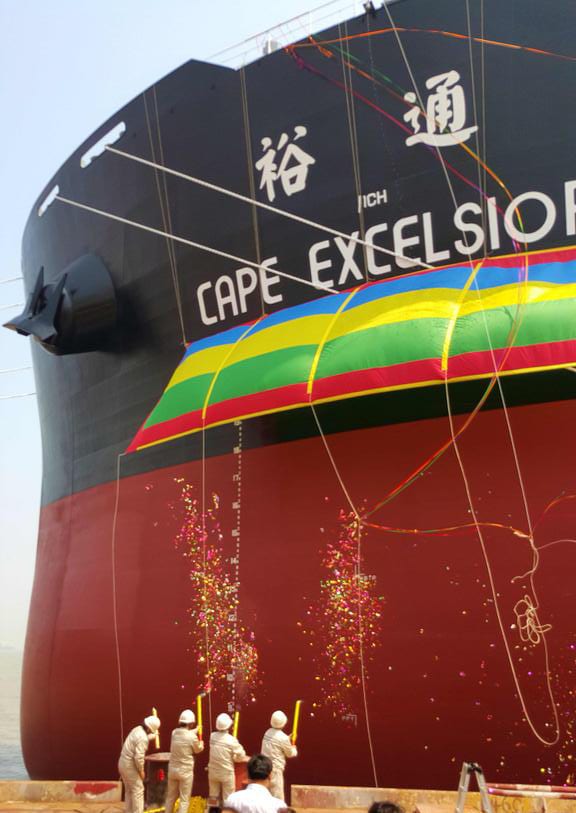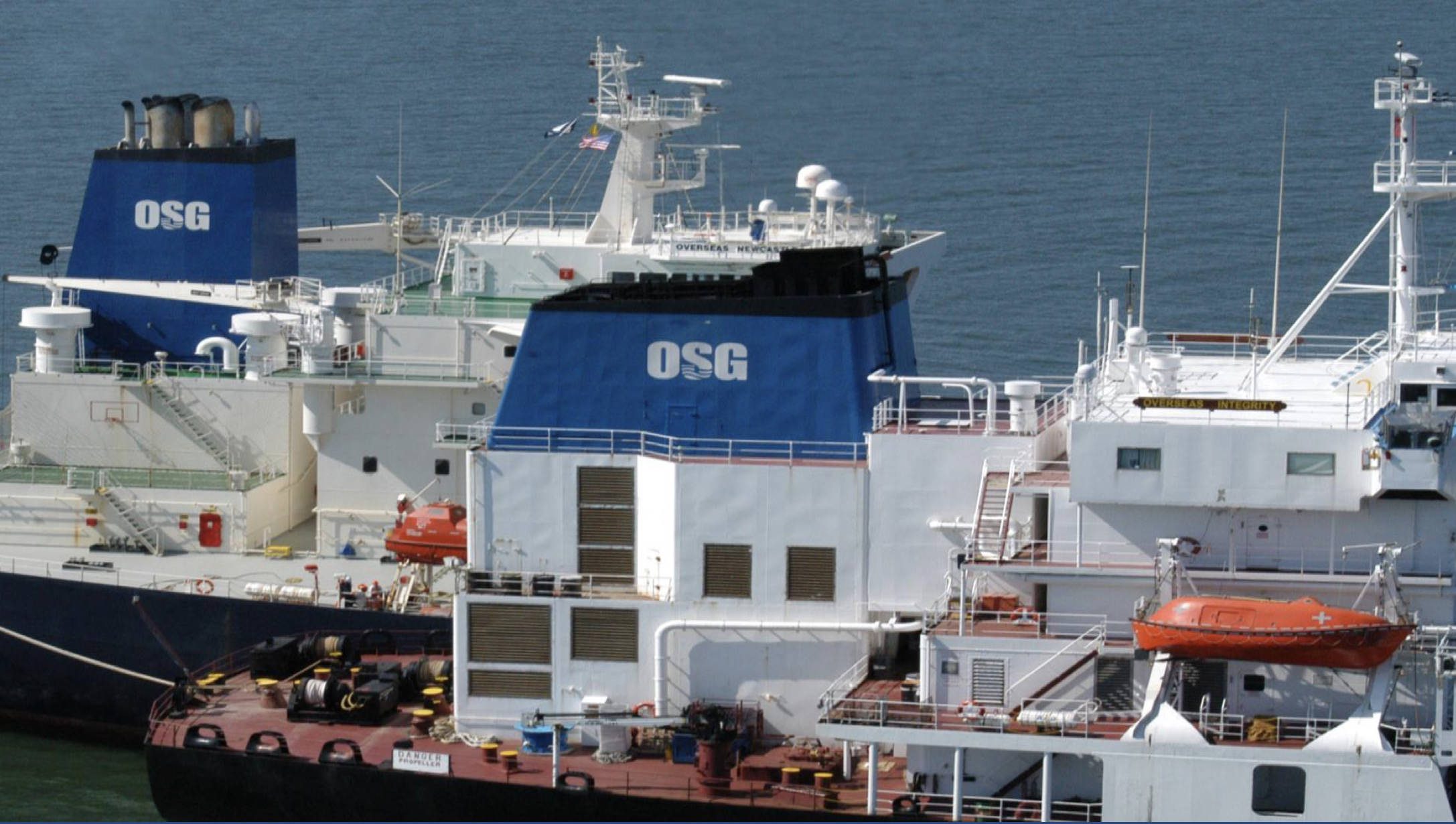, a capesize bulk carrer, was recently delivered by CSSC’s Shanghai Waigaoqiao Shipyard. Image by Andrew Tan, CEO of the MPA Singapore via Twitter
By Naomi Christie
(Bloomberg) — The worst start to a year for ships hauling iron ore since at least 2000 has gotten so bad that rates no longer cover crew costs. Now for the bad news.
China, whose demand for iron ore grew the most over the past decade, will consume less steel on an annual basis for the first time since 1995, the World Steel Association says. That’s a sign to Morgan Stanley that the economy’s need for imported ore cargoes will drop, something that last happened in 2010, according to data compiled by Bloomberg.
“What we see clearly is a significant slowdown in Chinese demand,” Fotis Giannakoulis, a New York-based shipping analyst at the bank, said by phone April 29. “The next 18 months, they look very difficult.”
A record expansion over the past half-decade in the global fleet of Capesizes flooded the market with ships, leaving some of the 1,000-foot vessels earning $22 a day less than crew salaries on global trade routes. The same carriers earned about $230,000 a day back in 2008 when rates reached a record.
Crewing Costs
Capesizes earned $3,211 a day on May 1, according to one of two global prices published by the Baltic Exchange, a London- based provider of freight rates. The ships need $3,233 to pay crews, according to data from Moore Stephens, a U.K.-based consultant that tracks the industry’s expenses.
Freight rates vary across routes and vessels can also earn more money on long-term charters, according to Erik Nikolai Stavseth, an analyst at Arctic Securities ASA in Oslo.
China imported an average of 75.7 million metric tons a month of iron ore in the first quarter, about 2 percent more than a year earlier, customs data show. The nation’s purchases of seaborne cargoes this year will decrease by 3 million tons to 927 million, Morgan Stanley estimates. That drop is the equivalent of about 20 Capesize cargoes.
Steel use in China, which accounts for about two in every three iron-ore cargoes, will drop 0.5 percent to 707.2 million tons in 2015 and 703.7 million tons next year, the World Steel Association estimates. Dry-bulk ships carry more iron ore than any other commodity.
Different Viewpoint
“This is extremely negative for Capesize demand,” Eirik Haavaldsen, an analyst at Pareto Securities AS in Oslo, said by phone April 28. “You’re still going to see fleet growth exceeding demand growth if this is the new scenario and then rates will not move from the current levels.”
The optimistic scenario is that iron-ore markets are so bad that China’s higher-cost domestic miners may be more vulnerable to weaker steel consumption than international suppliers, according to Clarkson Plc, the biggest shipbroker. The company estimates a 6 percent increase in cargoes to the country, down from 8 percent growth it anticipated at the end of last year.
While benchmark iron-ore prices have rallied 19 percent from their trough April 2, they’re still 65 percent below the peak reached in 2013, Metal Bulletin data show.
China’s domestically mined ore, typically lower-quality than international supplies, will drop by the equivalent of 50 million to 55 million tons of international-standard ore in 2015, Colin Hamilton, the head of commodities research at Macquarie Group Ltd. in London, said by phone April 29. Most or all of the missing supply will be replaced by seaborne imports, he said.
Demolition Surge
“The low-cost producers are based in Brazil and Australia so those ones could potentially replace your Chinese domestic second-tier iron ore producers,” Henriette van Niekerk, head of dry bulk analysis at Clarkson, said by phone April 24.
The slump in rates will also hasten demolition, curbing the growth that caused the slump. As much as 6 percent of the world’s fleet could be removed this year while owners are also idling ships, according to Charles Rupinski, an analyst who follows shipping for Global Hunter Securities LLC in New York.
The portents from China and the iron-ore market are not encouraging. The nation’s economy will grow 7 percent this year, its weakest pace since 1990, according to the average of 66 economists surveyed by Bloomberg.
“The dry bulk market needs a faster growth environment from China,” Stavseth, the analyst at Arctic, said by phone April 30. “Do you believe in China? If the answer is no, then I say forget it.”
©2015 Bloomberg News
Unlock Exclusive Insights Today!
Join the gCaptain Club for curated content, insider opinions, and vibrant community discussions.

 Join The Club
Join The Club







![A screengrab of a map showing an earthquake Mindanao, Philippines on Dec 2, 2023. (Image: US Geological Survey [USGS])](https://gcaptain.com/wp-content/uploads/2023/12/Screenshot-2023-12-02-at-10.45.17-AM-copy.png.webp)





